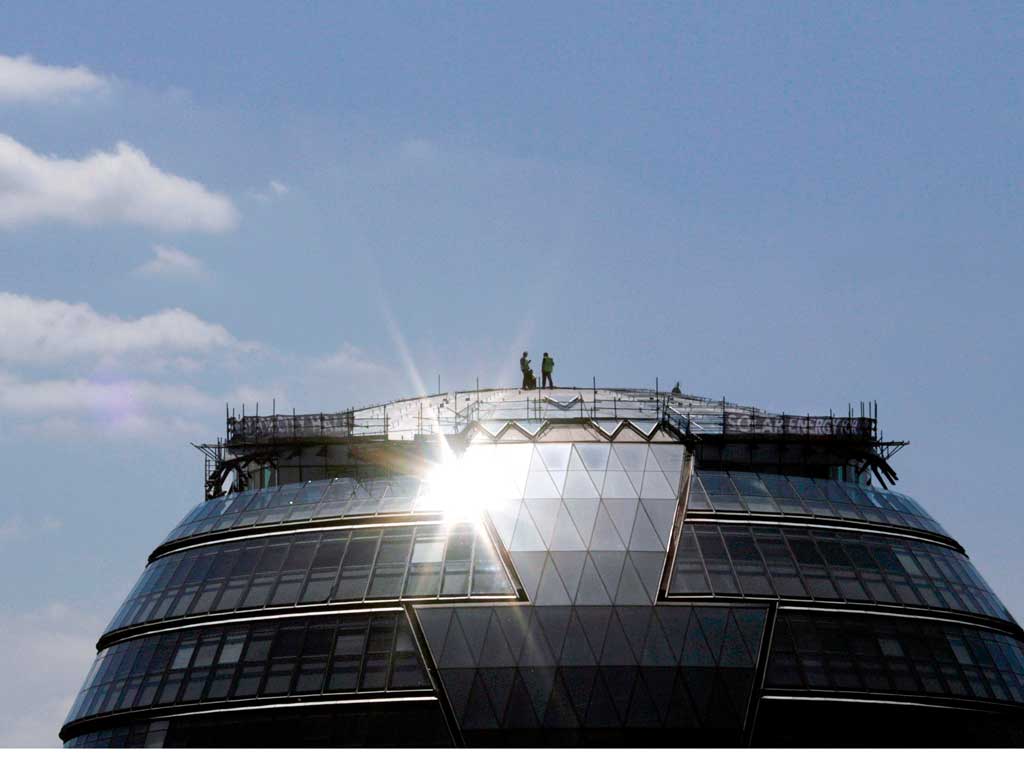Thousands of jobs at risk after David Cameron abandons solar subsidies
Senior figures in the industry say they face a bleak future as demand for panels collapses

Your support helps us to tell the story
From reproductive rights to climate change to Big Tech, The Independent is on the ground when the story is developing. Whether it's investigating the financials of Elon Musk's pro-Trump PAC or producing our latest documentary, 'The A Word', which shines a light on the American women fighting for reproductive rights, we know how important it is to parse out the facts from the messaging.
At such a critical moment in US history, we need reporters on the ground. Your donation allows us to keep sending journalists to speak to both sides of the story.
The Independent is trusted by Americans across the entire political spectrum. And unlike many other quality news outlets, we choose not to lock Americans out of our reporting and analysis with paywalls. We believe quality journalism should be available to everyone, paid for by those who can afford it.
Your support makes all the difference.New moves to reduce subsidies for fitting solar panels on homes are jeopardising Britain's hopes of hitting renewable energy targets and threatening thousands of jobs, David Cameron was warned last night.
Some 400 senior figures in the solar energy industry said demand for panels has collapsed since the Government started slashing financial incentives for families that want to go green.
In a joint letter to the Prime Minister, seen by The Independent, they protested that the sector faced a bleak future without dramatic action to demonstrate his support for solar energy. They said that more than 6,000 people working in solar energy had lost their jobs since last summer – and 43 per cent of companies in the sector are planning redundancies.
Ministers provoked fury last year when they more than halved the subsidy for the feed-in tariff for households which feed excess electricity from their solar panels into the national grid.
Critics said the move would deter people from buying panels, which cost an average of £12,000, because it would double the time it took them to recoup their initial investment.
The Department for Energy and Climate Change (Decc) is now consulting on a further cut in feed-in tariffs to come into effect in July. It argues that the scheme still amounts to a generous subsidy for prosperous people who can afford panels, funded by less well-off consumers. But the solar energy firms told Mr Cameron, who promised to lead the "greenest government ever", that demand for solar panels has halved in the past year because of the uncertainty over subsidies.
"The rate has nosedived to such an extent that it would now take another 160 years to deliver the amount of solar energy that the Government claims it wants to generate by 2020," they said.
Their letter called for an end to further cuts to tariffs "before the sun sets on the solar industry for good". They said: "It is more important than ever to persuade people that solar represents good value for money. A further sudden change to the tariff will simply increase the sense that the days of valuable returns are over."
The signatories added: "Our industry needs a chance to get back on its feet – 93 per cent of UK solar installation companies are now worried about their future."
A Decc spokeswoman said: "Solar does have a bright future in the UK. It is an exciting and popular new technology, but it would be totally irresponsible to continue subsidising the lucky few who are making eye-watering profits at the expense of the consumer who pays for this subsidy through their electricity bills."
She said that even at a tariff of 21p, rates of return are still higher than they were ever intended.
"This is why, in line with the falling costs of solar, we are proposing to gradually reduce the tariff levels so the rate of return remains stable. This will provide certainty for the industry going forward, help them to confidently market their products to customers."
Reza Shaybani, the chairman of the British Photovoltaic Association, said he agreed with the sentiments of the letter – but not the decision to lobby Mr Cameron in public. He said the industry was more likely to persuade ministers to change their minds by patient and courteous negotiation in private.
The letter comes two weeks after Mr Cameron told a conference in London of energy ministers from 23 countries that Britain would deliver on its renewable energy commitments. He said: "We urgently need a more diverse, cleaner mix of energy sources that give us energy security without causing irreparable damage to the planet."
Join our commenting forum
Join thought-provoking conversations, follow other Independent readers and see their replies
Comments